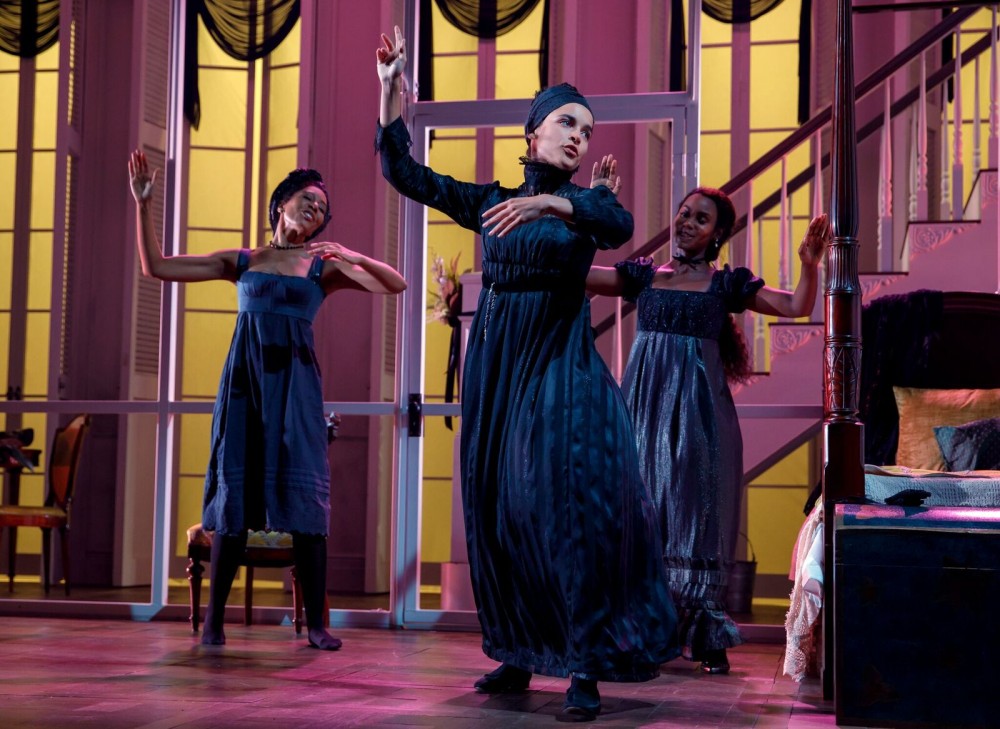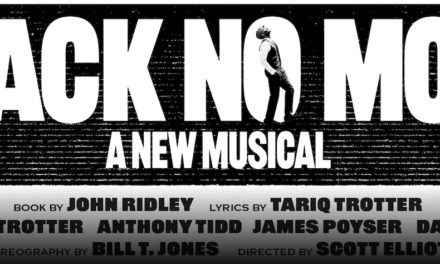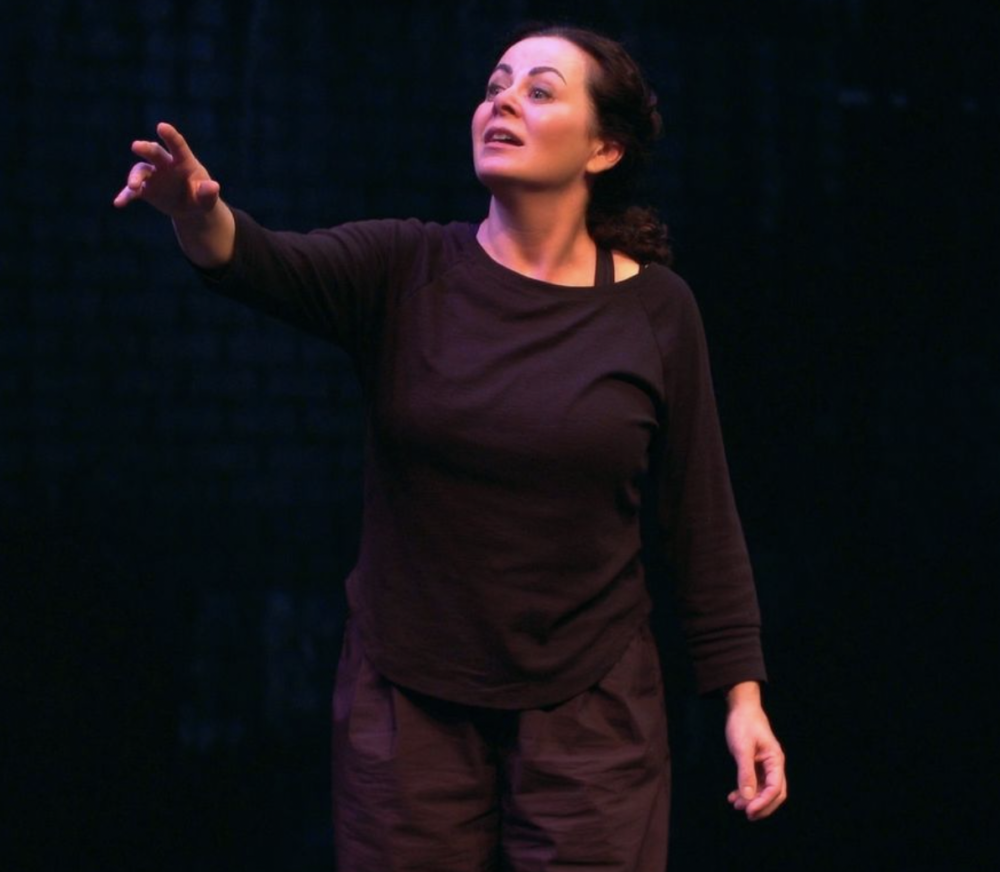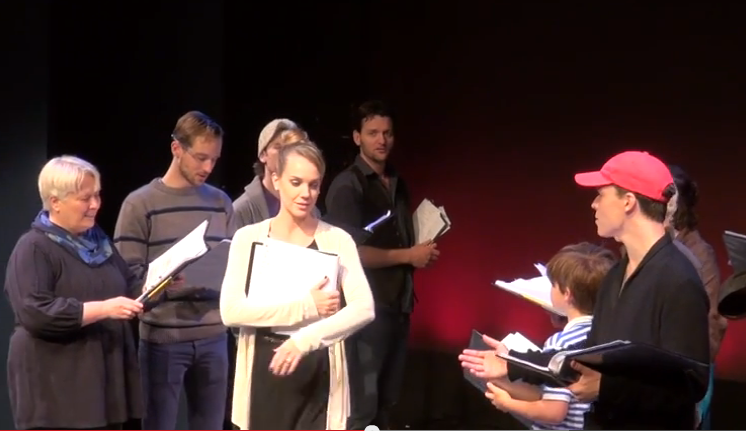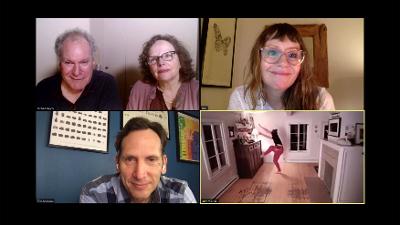by Michael Bracken
“A free woman of color.” It would have been an oxymoron in Mississippi in the early 1800’s, but not so in neighboring Louisiana, at least according to Marcus Gardley’s intriguing The House That Will Not Stand, at the New York Theatre Workshop.
Inspired by Lorca’s classic The House of Bernarda Alba, set in Spain, Gardley’s drama takes place in New Orleans, the day before Louisiana will officially become part of the United States. Racial oppression is superimposed onto Lorca’s theme of feminine oppression. Still in place is the framework of Lorca’s plot line about an indomitable matriarch who rules a woman-only family with an iron fist. But the geographical and temporal shift gives the tale an added dimension, underscoring the urgency that informs the attitude of the women, all of whom except one are free women of color.
The matriarch is Beatrice Albans (Lynda Gravátt), and the one exception is the maid, Makeda (Harriet D. Foy), a slave. She hopes to get her freedom before the midnight, because U.S. law makes it harder to shake off the shackles of slavery than Louisiana law.
In her way, Makeda is the play’s central character. While her struggle for freedom goes almost unnoticed among the histrionics of the other characters, she knows what transpires and has transpired among the various family members, including deceased Lazare Albans, the family’s white patriarch. He died suddenly the night before and now lies in repose at the rear of the set.
Makeda is also the one everyone else turns to for assistance in getting what they want. Beatrice’s archenemy, La Veuve (Marie Thomas), suspecting foul play on Beatrice’s part, pumps Makeda for information about Lazare’s death. Beatrice’s daughters ask her to plead their case with their mother to let them go to the masked ball that night.
Makeda also demonstrates an important characteristic that sets The House That Will Not Stand apart from that of Bernarda Alba: humor. While Gardley has given just about all his characters some clever ripostes, it’s Makeda who gets the most laugh lines. She takes herself the least seriously, allowing her to be the funniest. And Foy’s delivery is perfectly balanced between when the character Makeda is trying to be funny and when the humor comes of its own.
Lynda Gravátt is an implacable Beatrice: nothing gets past her. Adam Rigg’s handsome set is appropriately formal, reflecting Beatrice’s obsession with appearances. Rigg’s design encompasses several rooms of the capacious house where Beatrice, her three daughters, her sister and their maid live. Beatrice walks with a cane, which she wields like a weapon, making the entire room shake when she strikes the floor with it.
Her daughters fear, but still try to thwart, her. Odette, the youngest, is full of life and laughter, as well as rebellion. Joniece Abbott-Pratt endows her with a large share of mischief. Agnès (Nedra McClyde), the oldest, also has some rebellion in her but it’s tinged with desperation. She’s determined to go to the masked ball and become the placée (live-in, colored mistress) of Ramon LePip.
Juliana Canfield plays the middle daughter, who is full of piety and prone to tears and melodrama. She’s nothing if not maudlin, so Gardley finds humor in her name: Maude Lynn. And then there’s Beatrice’s sister, Marie Josephine (Michelle Wilson), who’s escaped from her usual habitat, the locked attic.
Director Lileana Blain-Cruz sets a pace that’s deliberate but not laggard. Her lighting designer, Yi Zhao, has a field day expressing the variations in atmosphere. As in the script, a somber mood predominates but it’s broken up regularly with flashes of light and color. Montana Levi Blanco’s costumes are eye-catching, especially Beatrice’s elegant mourning dress.
While hardly a walk in the park, The House That Will Not Stand is not as grim as The House of Bernarda Alba. By loosening, just a little, the stays in Bernarda’s corset, Gardley has created a dynamic, layered variation on a classic.
Photos: Joan Marcus
Through Sunday, August 12th, at New York Theatre Workshop, 79 E.4th Street. www.nytw.org 2 hours 15 minutes with one intermission.





